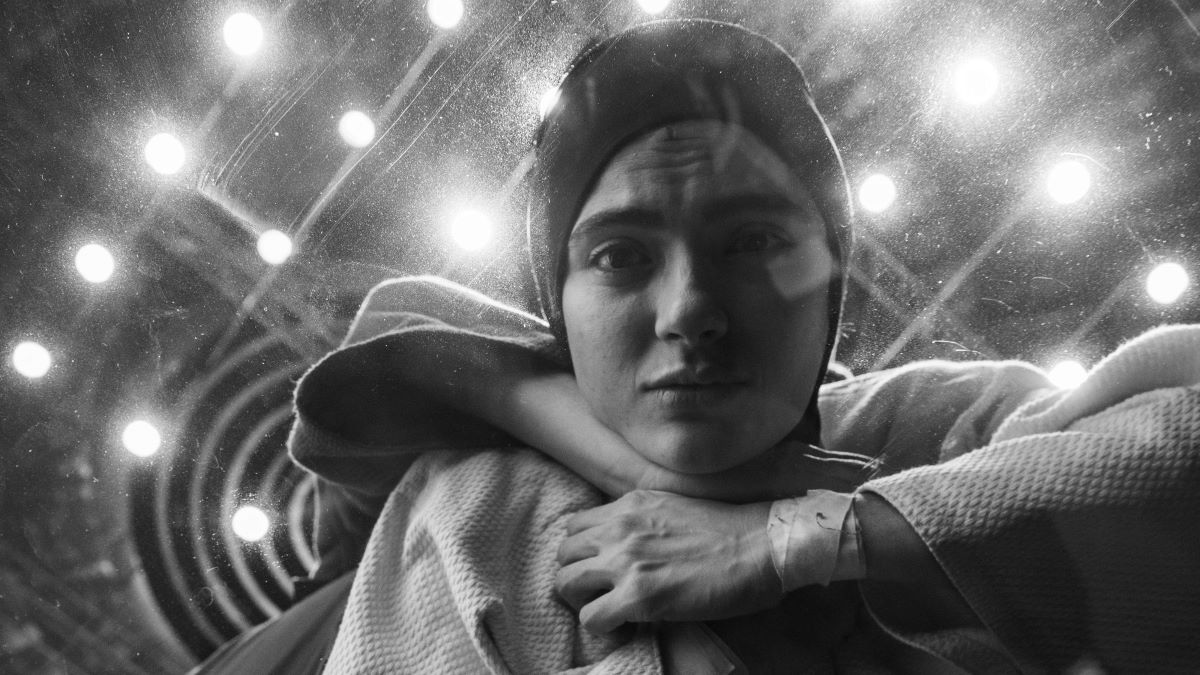by Dilys Powell
War, says the voice of the commentator as The Great Dictator opens, war on the Western Front, war in 1918; and 1918 it is, with Chaplin as a German soldier chased by a mad shell, Chaplin dropping a hand grenade down his own sleeve, Chaplin flying a plane upside-down; the photography is 1918, the make-up is 1918, the fun is 1918, everything is 1918, except – Chaplin speaks. He speaks in a normal English voice; an agreeable but not a memorable voice; the voice not of a comic, but of a pleasant little chap worried rather than scared by the incidence of mad shells, elusive hand grenades and recalcitrant planes. But not for long. The years whiz by; and now it is nearer 1940 than 1918, and Chaplin as Hynkel, Dictator of Tomania, is driving down an avenue embellished by the statuary of the New Order, statuary in which even the Venus de Milo has an arm for giving the Nazi salute; he is conferring with his gallant Garbitsch and his stout Herring, he is addressing his loving people in a crazy German-sounding gibberish, he is shouting and screaming and frothing and wheedling about the Jews and the British and democracy and the inalienable rights of the heroic and suffering Tomanians. And somewhere in the city Chaplin as a little Jewish barber, the same little man who suffered the unwelcome attentions of the mad shell, is returning to his shop in the Ghetto after years in a hospital where he has heard nothing of the glorious march of the new Tomania.
After nearly thirty years, then, of playing one character in one set of clothes, Chaplin takes on a double role. The subject of the film is thus new to him, or shall we say it is a new and advanced branch of his old subject, the dictatorship of the powerful and cruel over the humble and the dispossessed? He delivers his assault on the mighty not indirectly only, through the medium of the comical oppressed, but directly as well, through the medium of the comical oppressor: the attack is a split attack. In another way, too, the film is a split film; it darts between satire and realism; at one moment the comic Chaplinesque fight, at another the wholly uncomic sadism of the Storm Troopers, at one moment the Dictator robustly ridiculed, at the next the burning Ghetto, the sobbing women. Only the presentation, both of satire and of realism, is not new; the camerawork, though it emerges from the primitive simplicity of the first sequences, never reaches the standards we have come to expect to-day. Chaplin is still the Great Dictator in the cinema; he makes his own laws; the film is his own film, conceived, elaborated, controlled by his single imagination.
But how superbly he does the things which lie within the compass of his comic genius! The screaming dictator tearing off Herring’s decorations (down to his trouser-buttons), or posing for an infinitesimal second to despairing sculptors and painters before stamping off to strum on the harmonium; the little barber attending to a customer to the rhythm of a rhapsody from the Tomanian radio, and straightening his tie at the mirror of the man’s bald head; the dictator dancing a parody of a bubble-dance with the world, the little barber drawing lots for the task of blowing up the palace, finding the fatal coin in his piece of pudding, surreptitiously swallowing it, taking a confident second mouthful of pudding, finding a coin in that too, swallowing again, swallowing coin after coin until as he hiccups the cash chinks treacherously together. But it would not be just to imply that Chaplin is a one-man band; the touching charm of his scenes with the Jewish working girl (very well played by Paulette Goddard), would be refutation enough, and so would the farcical interplay with Napaloni, the rival dictator (Jack Oakie). Indeed there are moments when Jack Oakie, loud, beaming, the very portrait of a cheerful boisterous ruffian, holds the screen and deserves it.
All the scenes between Chaplin and Oakie are brilliantly contrived and played: the train drawing up at the wrong end of the platform, Napaloni bawling from the window, ‘You gotta de carpet, you puttema down!’; Madame Napaloni arrested by the police for trying to get into the same car with her husband; the two dictators, while waiting reporters are assured of the cordiality of the meeting, brawling at the buffet and throwing the nearest thing to a custard pie. The comic invention throughout has the old Chaplin touch. The serious interludes, the domestic scenes in the Ghetto, even the moments of brutal realism, though there are poor and dull patches, did not offend me by their contrast with the satirical farce of the rest of the story; indeed, I was moved by much of this as I have not been moved by the more ambitious horrors of the straightforward propagandists. But for me the film contained one major error: the final speech in which the little barber, mistaken for the Dictator, speaks to the people in the serious tones of an orator appealing for humanity and brotherly pity. This finale is so blatantly out of harmony with what has gone before as to nullify much of the effectiveness of the preceding two hours.
The Sunday Times, December 1940
Republished in Dilys Powell, The Golden Screen: Fifty Years at the Films




